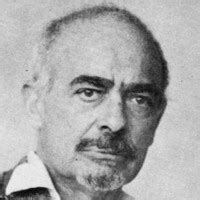A Quote by Daniel Fried
For two generations up through the mid-1980s, many thought we were losing the Cold War, even in early 1989, few believed that Poland`s solidarity movement could win, that the Iron Curtain would come down, that the Baltic states could be free, that the second of the 20th century`s great evils, communism, could be vanquished without war, but it happened and the West`s great institutions, NATO and the E.U., grew to embrace 100 million liberated Europeans.
Quote Topics
Baltic
Believed
Century
Cold
Cold War
Come
Communism
Could
Curtain
Down
Early
Embrace
Europeans
Even
Evils
Few
Free
Generations
Great
Grew
Happened
Institutions
Iron
Iron Curtain
Liberated
Losing
Many
Mid
Million
Movement
NATO
Poland
Second
Solidarity
States
Thought
Through
Two
Up
Vanquished
War
Were
West
Win
Without
Would
Related Quotes
Once the war began, the government could do anything 'necessary' to win it; so it was with the 'final solution of the Jewish problem,' which the Nazis always talked about but never dared undertake, not even the Nazis, until war and its 'necessities' gave them the knowledge that they could get away with it. The people abroad who thought that war against Hitler would help the Jews were wrong. And the people in Germany who, once the war had begun, still thought of complaining, protesting, resisting, were betting on Germany's losing the war. It was a long bet. Not many made it.
Following the end of the Cold War, there was much discussion concerning the point of NATO. In the event, it was reinvented as a means of reducing Russia's reach on its western frontiers and seeking to isolate it. Its former East European client states were admitted to NATO, as were the Baltic states.
I believed even then that if I could transform my experience into poetry I would give it the value and dignity it did not begin to possess on its own. I thought too that if I could write about it I could come to understand it; I believed that if I could understand my life—or at least the part my work played in it—I could embrace it with some degree of joy, an element conspicuously missing from my life.
I lived through the Cold War as a child, and we always thought a nuclear bomb could end life everywhere at any time. On one hand, it created an atmosphere where you lived for the moment - because it could end at any second - but on the other, it warped a generation into thinking t there was no reasonable expectation of building a future that could be vaporized at any moment by a few morons.
Given the complexity of interpersonal relationships and institutions and the complexity of co-ordination of the actions of many people, it is enormously unlikely that, even if there were one ideal pattern for society, it could be arrived at in an a priori fashion. And even supposing that some great genius did come along with a blueprint, who could have the confidence that it could work
What's fascinating . . .is that you could now have a business that might have been selling for $10 billion where the business itself could probably not have borrowed even $100 million. But the owners of that business, because its public, could borrow many billions of dollars on their little pieces of paper- because they had these market valuations. But as a private business, the company itself couldn't borrow even 1/20th of what the individuals could borrow.
Before the Second World War I believed in the perfectibility of social man; that a correct structure of society would produce goodwill; and that therefore you could remove all social ills by a reorganisation of society. .... but after the war I did not because I was unable to. I had discovered what one man could do to another... I must say that anyone who moved through those years without understanding that man produces evil as a bee produces honey, must have been blind or wrong in the head...
The Second World War had a precipitating effect in that it discredited the empires, as well as bankrupting them. Not only could you no longer, if you were a colonial subject of France in Africa, look to France as a model of power and influence and civility after what had happened in the war. Nor could the French any longer afford to run their empire. And nor could the British, although they were not discredited in the way that the French were.








































